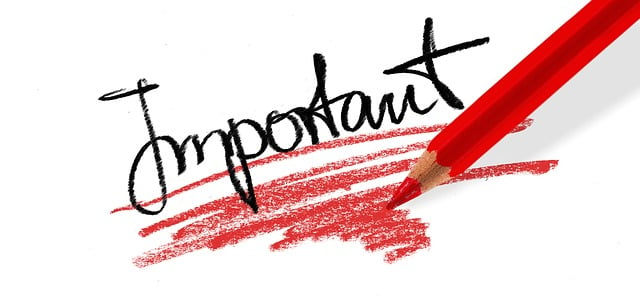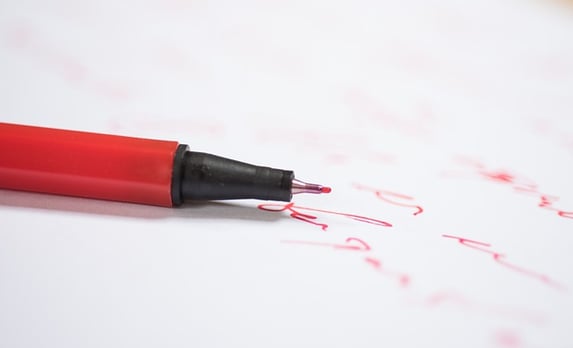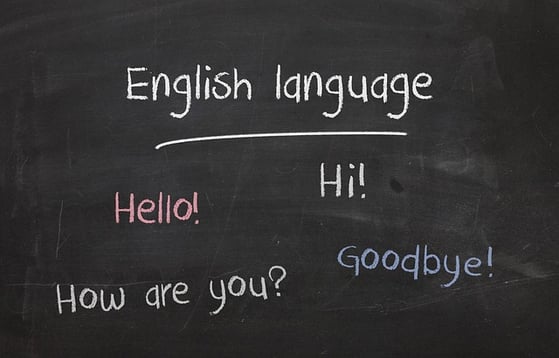
Are you scoring in the 600-750 range on SAT Reading and Writing? Do you want to raise that score as high as possible—to a perfect 800?
Getting to a perfect SAT Reading and Writing test score isn't easy. It'll require perfection. But with hard work and my strategies below, you can do it. I've consistently scored 800 on Reading and Writing on my real SATs, and I know what it takes. Follow my advice, and you'll get a perfect score—or get very close.
Brief note: This article is suited for advanced students already scoring a 600 on SAT Reading and Writing or above. If you're below this range, my "How to Improve your SAT Reading Score to a 600" article is more appropriate for you. Follow the SAT Reading tips in that article, then come back to this one when you've reached a 600.
Why This Is the Best Guide to a Perfect Score on SAT Reading and Writing
Most guides on the internet on how to score an 800 are pretty low quality and written by people who never scored an 800 themselves. You can tell because their advice is usually vague and not very pragmatic. It's not enough to be reminded of simple tips like "don't forget to guess on every question!"
In contrast, I've written what I believe to be the best guide on getting an 800 available anywhere. I have confidence that these strategies work because I used them myself to score 800 on SAT Reading and Writing consistently. They've also worked for thousands of my students at PrepScholar.
In this article, I'm going to discuss why scoring an 800 is a good idea, what it takes to score an 800, and then go into the 9 key SAT Reading and Writing strategies so you know how to get a perfect SAT Reading and Writing score.
Stick with me—as an advanced student, you probably already know that scoring high is good. But it's important to know why an 800 Reading and Writing score is useful since this will fuel your motivation to get a high score.
This guide has been updated for the digital SAT, so you can be sure my advice works for the test you're about to take.
Final note: in this guide, I talk mainly about getting to an 800. But if your goal is a 700, these strategies still equally apply.

Understand the Stakes: Why an 800 SAT Reading and Writing?
Let's make something clear: a 1550+ on the SAT is equivalent to a perfect 1600. No top college is going to give you more credit for a 1590 than a 1550. You've already crossed their score threshold, and whether you get in now depends on the rest of your application.
If you're already scoring a 1550, don't waste your time studying trying to get a 1600. You have the score you need for top colleges, and it's time to work on the rest of your application.
But if you're scoring a 1540 or below and you want to go to a top 10 college, it's worth your time to push your score up to a 1550 or above. There's a big difference between a 1450 and a 1550, largely because it's easier to get a 1450 (and a lot more applicants do) than a 1550.
A 1540 places you right around average at Harvard and Princeton, and being average is bad in terms of Ivy League-level admissions since the admissions rate is typically below 10%.
So why get an 800 on SAT Reading and Writing? Because it helps you compensate for weaknesses in other sections. By and large, schools consider your composite score more so than your individual section scores. If you can get a perfect 800 in SAT Reading and Writing, you can get a 750 in SAT Math and still be confident about your test scores. This gives you a lot more flexibility.
The other scenario where an 800 in SAT Reading and Writing is really important is if you're planning to apply as a humanities or social science major (like English, political science, communications) to a top school.
Here's the reason: college admissions is all about comparisons between applicants. The school wants to admit the best, and you're competing with other people in the same "bucket" as you. By applying as a humanities/social science major, you're competing against other humanities/social science folks for whom SAT Reading is easy. Really easy.
Here are a few examples from schools. For Harvard, Princeton, Yale, and U Chicago, the 75th percentile SAT Reading score is a 780 or above. That means at least 25% of all students at these schools have a 780 in SAT Reading.
If you can work your way to an 800, you show that you're at an equal level (at least on this metric). Even if it takes you a ton of work, all that matters is the score you achieve at the end.
I'll be honest—SAT Reading wasn't my strong suit in high school. When I started studying, I was scoring around the 700 range. I was always stronger in math and science.
But I learned the tricks of the test, and I developed the strategies below to raise my score to an 800. Now I'm sharing them with you.
Know That You Can Do It
This isn't just some fuzzy feel-good message. I mean, literally, you and every other truly motivated student can score an 800 on SAT Reading and Writing.
More than anything else, your SAT score is a reflection of how hard you work and how efficiently you study.
Here's why: the SAT is a weird test. When you take it, don't you get the sense that the questions are nothing like what you've seen in school?
That's because they aren't. The SAT wants to test your college readiness, and part of that is testing whether you can take what you've learned so far and apply that to solve new, unfamiliar problems. But that doesn't mean you can't prepare for the task—I'm here to show you how.

SAT Reading and Writing Is Designed to Trick You — You Need to Learn How
I bet you've had this problem: in SAT Reading and Writing, you often miss questions because of an unlucky guess. You'll try to eliminate a few answer choices, and the remaining answer choices will all sound equally good to you.
This was one of the major issues when I was studying for the SAT, and I know it affects thousands of my students at PrepScholar. Here's the secret: the SAT is purposely designed this way to confuse you.
Normally in English class, the focus is on how to analyze a text and make a compelling argument. You can frequently write an essay about anything you want, as long as you can back it up with evidence. Similarly, grammar is mostly considered as part of constructing a clear argument — your writing makes sense but you probably don't know the exact rules you're following.
The SAT has a unique problem. It's a national test, which means it needs a level playing field for all students around the country. It can only test topics that every high schooler will learn. Since they can't test obscure and challenging topics, the College Board has to find different ways of making some questions more difficult, typically by testing familiar concepts in strange ways. Moreover, every question needs a single, unambiguously, 100% correct answer.
Imagine if each question had two answer choices that might each be plausibly correct. When the scores came out, every single student who got the question wrong would complain to the College Board about the test being wrong. The College Board would then have to invalidate the question, weakening the power of the test.
SAT Reading Tricks
SAT reading questions disguise the fact that they only have one correct answer by asking questions like:
- The author would most likely agree with which of the following statements?
- The first paragraph primarily serves to:
- In line 20, 'dark' most nearly means:
Notice a pattern here? The phrasing encourages you to waver between two or three answer choices that are most likely.
When it works, you guess randomly. And then you get the question wrong.
Students fall for this trick millions of times every year. But if you learn the tricks the SAT Reading plays on you, you can avoid them.
SAT Writing Tricks
SAT Writing questions are all about topics you've learned in school and probably use every day: subject-verb agreement, run-on sentences, pronoun choice, etc. But, in order to make the test more difficult, the SAT tests these concepts in strange ways. This trips up students who don't prepare but rewards students who understand the test well.
Take a look at this example sentence:
The commissioner, along with his 20 staff members, run a tight campaign against the incumbent.
Can you spot the problem? The error is in subject/verb agreement. The subject of the sentence is commissioner, which is singular, but the verb is "run." Because the subject is singular, it should really be "runs."
If you didn't recognize this, you fell for a classic SAT Writing trap. It purposely confused you with the interrupting phrase, "along with his 20 staff members." You're now picturing 20 people in a campaign—which suggests a plural verb!
The SAT Writing section is full of examples like this, and they get trickier. Nearly every grammar rule is tested in specific ways, and if you don't prepare for these, you're going to do a lot worse than you should.
Here's the good news: this might have been confusing the first time, but the next time you see a question like this, you'll know exactly what to do: find the subject and the verb, and get rid of the interrupting phrase.
If you prepare for the SAT in the right way, you'll learn the tricks the SAT plays on you. To improve your score, you just need to:
- Learn the types of questions that the SAT tests
- Learn strategies to solve these questions, using skills you already know
- Practice on a lot of questions so you learn from your mistakes
The point is that you can learn these skills even if you don't consider yourself a good reader or a great English student. I'll go into more detail about exactly how to do this.
What It Takes to Get An 800 in Reading and Writing
If we have a target score in mind, it helps to understand what you need to get that score on the actual test, and in the past, we could calculate fairly precisely how many questions you needed to get right in order to get a perfect score. We knew that you could miss one or possibly two questions and still get an 800.
Unfortunately, the new adaptive format makes those calculations irrelevant. For now, we have to assume you cannot miss any questions if you want a perfect score on the digital SAT.
The safest thing to do is to aim for perfection. You need to try to get every question right.

Strategies to Get a Perfect Score on SAT Reading and Writing
We've covered why scoring higher on SAT reading and writing is important, why you specifically are capable of improving your score, and the number of questions you need to get to your target.
Now I'll get into actionable strategies that you should use in your own studying to maximize your score improvement, starting with some high-level study advice and then moving on to specific tips for the different types of questions.
Strategy 1: Understand Your High Level Weakness
Every student has different flaws in SAT Reading and Writing. Some people aren't comfortable with the underlying grammar rules or how to approach the passages. Others know the material well but can't read questions quickly enough or get distracted in stressful testing conditions.
There are two main types of high-level weakness: content and time management. Students with content weaknesses don't understand some of the concepts covered on SAT Reading and Writing, while those with time management weaknesses wither struggle to finish the test or make careless errors due to rushing through questions.
After taking your first practice test (from the complete list of free practice tests), you'll need to analyze the questions you missed and dig into why you got them wrong (more on this below). As you do that, also look for high-level patterns by asking the following questions:
- Did you run out of time on the reading and writing module? If not, did you use extra time to double check your answers? Not finishing the test is typically an indicator of time management problems, but even finishing every question doesn't necessarily mean you used all the time effectively.
- Look at the questions you spent the most time on, whether you answered them correctly or not. Why did they take you so long? Was there a faster way to find the answer?
- For questions that tripped you up (even if you ended up getting the right answer), was the issue that you didn't know the underlying grammar, vocabulary, or concepts or that you struggled to make sense of the question?
- Did you miss any questions that you are confident you know how to answer? Did you miss it because you were rushing through the question?
Typically I see that students have both timing and content issues, but you might find that one is much more dominant for you than the other.

Strategy 2: Do a Ton of Practice, and Understand Every Single Mistake
On the path to perfection, you need to make sure every single one of your weak points is covered. Even just one mistake will knock you down from an 800, as we saw in the score charts above.
The first step is simply to do a ton of practice. If you're studying from free materials or from books, you have access to a lot of practice questions in bulk. As part of our PrepScholar program, we have over 7,000 SAT questions customized to each skill. Even better: you can test our platform for free.
The second step—and the more important part—is to be ruthless about understanding your mistakes. Every mistake you make on a test happens for a reason.
If you don't understand exactly why you missed that question, you will make that mistake over and over again.
I've seen students who did 20 practice tests. They've solved over 3,000 questions, but they're still nowhere near a perfect SAT Reading and Writing score.
Why? They never understood their mistakes. They just hit their heads against the wall over and over again.
Think of yourself as an exterminator, and your mistakes are cockroaches. You need to eliminate every single one—and find the source of each one—or else the restaurant you work for will be shut down.
Here's what you need to do:
- On every practice test or question set that you take, mark every question that you're even 20% unsure about.
- When you grade your test or quiz, review EVERY single question that you marked AND every incorrect question. This way even if you guessed a question correctly, you'll make sure to review it.
- Keep a log of these problematic questions where you write down:
#1: a summary of the question,
#2: why you missed it, and
#3: what you'll do to avoid that mistake in the future.
Have separate sections by subject and sub-topic (reading: vocabulary/writing: punctuation, etc.)
It's not enough to just think about it and move on. It's not enough to just read the answer explanation. You have to think hard about why you failed on this specific question. By taking this structured approach to your mistakes, you'll now have a running log of every question you missed and your reflection on why.
Always Go Deeper—Why Did You Miss the Question?
Now, what are some common reasons that you missed a question? Don't just say, "I didn't get this question right." That's a cop out. Always take it one step further: what specifically did you miss, and what do you have to improve in the future?
Here are some examples of common reasons you miss a Reading or Writing question, and how you take the analysis one step further:
Elimination: I couldn't eliminate enough incorrect answer choices, or I eliminated the correct answer.
One step further: Why couldn't I eliminate the answer choice during the test? How can I eliminate answer choices like this in the future?
Content: I didn't learn the grammar rule needed to answer this question.
One step further: What specific rule do I need to learn, and what resources will I use to learn this grammar rule?
Overlooked Rule: I knew the grammar rule, but the SAT question was written in a way that made me miss it.
One step further: How do I solve the question now? Is there a strategy I can use to notice this grammar rule in the future?
Careless Error: I misread what the question was asking for or answered for the wrong thing.
One step further: Why did I misread the question? What should I do in the future to avoid this?
Vocab: I didn't know what the key word meant.
One step further: What word was this? What is the definition? Are there other words in this question I didn't know?
Get the idea? You're really digging into understanding why you're missing questions.
Yes, this is hard, and it's draining, and it takes work. That's why most students who study ineffectively don't improve.
Many people don't know the right way to study. Of the people who do, very few will diligently apply the right methods, day in, and day out, with discipline.
But you're different. Just by reading this guide, you're already proving that you care more than other students. And if you apply these principles and analyze your mistakes, you'll improve more than other students too.
Reviewing mistakes is so important that at PrepScholar, for every one of our 7,000+ practice questions we give a detailed explanation on how to get the correct answer and why incorrect answers are wrong. We also point out bait answers so that you can learn the tricks that the SAT plays on test takers like you.
Bonus Tip: Re-Solve the Question Before Reading the Answer Explanation
When you're reviewing practice questions you've missed, you probably read the answer explanation and then move on. But that's too easy and doesn't work. I consider this passive learning—you're not actively engaging with the mistake you made.
It's too easy to just read an answer explanation and have it go in one ear and out the other. You won't actually learn from your mistake, and you'll make that mistake over and over again.
Instead, try something different. Find the correct answer choice (A-D), but don't look at the explanation. Instead, try to re-solve the question once over again and try to get to the correct answer.
This will often be hard. You couldn't solve it the first time, so why could you solve it the second time around?
But this time, with less time pressure, you might spot a new reason to eliminate the wrong answer choice, or something else will pop up. Something will just "click" for you.
When this happens, what you learned will stick with you for 20 times longer than if you just read an answer explanation. I know this from personal experience. Because you've struggled with it and reached a breakthrough, you retain that information far better than if you just passively absorbed the information.
This is perfect for SAT Reading because you'll often miss a question because of an incorrect interpretation of the text. By forcing yourself to get the right answer, you'll practice getting the correct interpretation of the text. Even better, you'll be scrounging the passage for clues as to why the correct answer is correct, which is exactly what you need in your passage strategy to begin with.
Treat each wrong question like a puzzle. Struggle with each wrong answer for up to 10 minutes. Only then if you don't get it should you read the answer explanation.

Drill your mistakes (figuratively, not literally).
Strategy 3: Find Your Weaknesses and Drill Them
If you're like most students, you're probably better in some Reading and Writing areas than others. For instance, you might be better at getting the big picture of a passage than remembering where to place commas. Or you might be really strong in vocabulary but weaker in understanding the function of sentences in a passage.
If you're like most students, you also don't have an unlimited amount of time to study. This means for every hour you study for the SAT, it needs to be the most effective hour possible.
In concrete terms, you need to find your greatest areas of improvement and work on those.
Too many students study the wrong way. They just buy a book and read it cover to cover. When they don't improve, they're shocked—but I'm not.
Studying effectively for the SAT isn't like painting a house. You're not trying to cover all your bases with a very thin layer of understanding. These students wasted time on subjects they already knew, and they didn't spend enough time on their weaknesses.
Instead, studying effectively for the SAT is like plugging up the holes of a leaky boat. You need to find the biggest hole and fill it first. Then you find the next biggest hole, and you fix that. Soon you'll find that your boat isn't sinking at all.
How does this relate to SAT Reading and Writing? You need to find the sub-skills that you're weakest in, then drill those until you're no longer weak in them. Fix the biggest holes first.
Within reading, you need to figure out whether you have patterns to your mistakes. Is it that you don't get Inference questions? Or maybe you're really weak at interpreting details? Or that you don't understand subject-verb agreement? For every question that you miss, you need to identify the question type.
Once you find the patterns to the questions you miss, you need to do extra practice for those skills. Say you miss a lot of inference questions (this is typically the hardest type of question for students to understand). You need to find a way to get focused practice questions for this skill so you can drill your mistakes. (Spoiler alert: you can find lots of free questions in our complete guide to digital SAT practice tests.)
Strategy 4: Learn to Eliminate 3 Wrong Answers
This strategy was by far the most effective in raising my SAT Reading and Writing score. It completely changed the way I viewed reading questions.
I spent some time above talking about how the SAT always has one unambiguous answer. Only one answer is 100% correct, so three out of the four answer choices have something that is wrong about them. which means the other three are wrong.
You know how you try to eliminate answer choices, and then end up with a few at the end that all seem equally likely to be correct? "Well, this can work...but then again this could work as well..."
STOP doing that. You're not doing a good enough job of eliminating answer choices. Remember — every single wrong choice can be crossed out for its own reasons.
You need to do a 180 on your approach to Reading questions. Instead, find a reason to eliminate three answer choices. "Can I find a reason to eliminate this answer choice? How about this one?"
You're probably thinking, "Great, Allen. But this doesn't tell me anything about how to eliminate answer choices."
Thanks for asking. One thing to remember is that even a single word can make an answer choice wrong. Every single word in each answer choice is put there by the SAT for a reason. If a single word in the answer choice isn't supported by the passage text, you need to eliminate it, even if the rest of the answer sounds good.
There are a few classic wrong answer choices the SAT loves to use. For example, let's imagine you just read a passage talking about how human evolution shaped the environment. First, it talks about how the transition from earlier species like Homo habilus to neanderthals led to more tool usage like fire, which caused wildfires and shaped the ecology. It then talks about Homo sapiens 40,000 years ago and their overhunting of species like woolly mammoths to extinction.
So then we run into a question asking, "Which of the following best describes the main subject of the passage?" Here are the answer choices:
- A: The transition between Homo habilus and neanderthals
- B: The study of evolution
- C: How the environment shaped human evolution
- D: The plausibility of evolution
- E: The influence of human development on ecology
(We're using five answers for purposes of illustration—the SAT will only have four choices).
As you're reading these answer choices, a few of them probably started sounded really plausible to you.
Surprise! Each of the answers from A-D has something seriously wrong about it. Each one is a classic example of a wrong answer type given by the SAT.

Wrong Answer 1: Too Specific
A: The transition between Homo habilus and neanderthals
This type of wrong answer focuses on a smaller detail in the passage. It's meant to trick you because you might think to yourself, "well, I see this mentioned in the passage, so it's a plausible answer choice."
Wrong! Think to yourself—can this answer choice really describe the entire passage? Can it basically function as the title of this passage? You'll find that it's just way too specific to convey the point of the overall passage.
Wrong Answer 2: Too Broad
B: The study of evolution
This type of wrong answer has the opposite problem—it's way too broad. Yes, theoretically the passage concerns the study of evolution, but only one aspect of it, and especially as it relates to the impact on the environment.
To give another ludicrous example, if you talked to your friend about your cell phone, and he said your main point was about the universe. Yes, technically your cell phone is a part of the universe, but only a tiny fraction of it. This is way too broad.
Wrong Answer 3: Reversed Relationship
C: How the environment shaped human evolution
This wrong answer choice can be tricky because it mentions all the right words. But of course the relationship between those words needs to be correct as well. Here, the relationship is flipped. Students who read too quickly make careless mistakes like these!
Wrong Answer 4: Unrelated Concept
D: The plausibility of evolution
Finally, this kind of wrong answer preys on the tendency of students to overthink the question. If you're passionate about arguing about evolution, this might be a trigger answer since any discussion of evolution becomes a chance to argue about the plausibility of evolution. Of course, this concept will appear nowhere in the passage, but some students just won't be able to resist.
Do you see the point? On the surface, each of the answer choices sounds possibly correct. A less prepared student would think that all of these were plausible answers.
But plausible isn't good enough. The right answer needs to be 100%, totally right. Wrong answers might be off by even one word—you need to eliminate these.
Carry this approach into every SAT Reading passage question, and I guarantee you'll start raising your score.
Strategy 5: Predict the Answer Before Reading the Answer Choices
As we've discussed already, the SAT is designed to goad you into making mistakes by putting really similar answer choices next to each other. In Strategy 3, we covered the strategy of ruthless, unforgiving elimination of answer choices. Here's another strategy that helps avoid those traps: before reading the answer choices, come up with your own answer to the question.
If you don't apply this strategy, your thinking process will meander. You'll probably think, "Okay, I just read the question. Answer A is definitely out. B can kind of work. C...it doesn't exactly fit, but I can see how it might work" and so on.
By now, you've already fallen into the College Board's trap of muddling the answer choices.
Take the opposite approach. While you're reading the question, come up with your own ideal answer to the question before reading the answer choices. This prevents you from being biased to the SAT's answer choices, especially the incorrect ones.
Even if you can't answer the question straight away, try to solve the question before looking at the answer choices.
The key here is that you must be able to support your answer choice. Every correct answer on SAT Reading and Writing needs to be justified by the text. Otherwise, the answer would be ambiguous, which would cause problems of cancelling questions I talked about earlier.

Strategy 6: Justify Every Answer
Many top students take a "soft approach" to SAT Writing, picking the answer that feels right without necessarily knowing why. When you've truly mastered the test, this can serve you well. However, most students never get to this level of familiarity with the test.
What's the strategy to counter this? On every question, you need to justify the answer to yourself. What grammar rule or piece of the passages makes this answer the right one? If you can't point to a specific rationale, the answer is probably not correct.
This is especially true in rhetoric questions, where the answer choices can be vague and subtly different. You have to understand why one answer is definitely the right answer, and the other three answers are definitely the wrong answers. This is a standardized test.
Strategy 7: Finish With Extra Time and Double Check
Your goal at the end of all this work is to get so good at SAT Reading and Writing that you solve every question and have extra time left over at the end of the section to recheck your work.
In high school, I was able to finish a Reading section in about 60% of the time allotted. For SAT Reading and Writing, this means finishing a module's 27 questions in 20 minutes.
This means I have 12 minutes left over to recheck my answers...twice.
How did I get so fast?
Through a lot of hard work. My continuous practice honed my instincts for the test. I understood the test so well that when I read a question, I could predict the answer within a few seconds. I could rule out wrong answers instantly because they just felt wrong.
I've surveyed thousands of questions and understood every single SAT skill deeply to design PrepScholar's Complete SAT Prep Program.
But you probably haven't read hundreds of thousands of SAT questions like I have. So what's the best way to double check your work? I have a reliable method that I follow:
- Re-read the question. Question your assumption of what the question is about. Name the specific grammar rule or analysis concept that it's testing.
- Try to resolve the question with a different method than the one you originally used. If you solved a question by process of elimination, recheck it by trying to answer in your own words.
- If I'm not 100% sure I'm right on a question, even if it's just a little twinge of remaining doubt, I'll mark it for review and come back to it on the next pass.
If you notice yourself spending more than 30 seconds on a question and aren't clear how you'll get to the answer, skip and go to the next question. Even though you need a near perfect raw score for an 800, don't be afraid to skip a question. You can come back to it later, and for now it's more important to get as many points as possible.

Strategy 8: Comprehensively Learn the Grammar Rules
There's just no way around it. You need to know all the grammar rules tested on the test and how they work.
Certain grammar rules, like punctuation usage, appear far more often than other rules. But because we're going for perfection, you'll need to know even the less common rules.
In our PrepScholar program, we've identified the following as the most to least important grammar rules:
- Punctuation
- Sentence Structure
- Verb Tense
- Modifiers
- Possessives
- Agreement
- Pronouns
- Conventional Expression
Of course, these are general categories. There are more specific "sub-rules" you'll need to know, but they differ from each other in how often they appear on the test and how hard they are to study.
For example, Punctuation is by far the most common grammar rule on SAT Writing, but it only uses a few separate concepts. You'll see a lot of questions on comma use and periods versus semicolons, but very few (if any) on question marks or exclamation points.
Therefore, it's important for you to focus your time on studying the highest impact grammar rules. Our PrepScholar program, for example, quizzes you in relation to how common each grammar rule is, so that you focus your efforts on the rules that make the biggest difference to your score.
Strategy 9: Don't Get Sucked Into the Vocab Vortex
Vocab typically gets way too much attention from students. It feels good to study vocab flashcards, because it seems like you're making progress. "I studied 1,000 vocab words—this must mean I improved my score!"
This sense of accomplishment is why other test prep programs love teaching you vocab—it feels like they're teaching you something useful, and it's not obvious that vocab actually isn't helping your score.
The digital SAT includes a number of vocab in context questions, but the words that you have to analyze in context are usually pretty common.
Here are examples of words that you need to understand in context in the digital SAT:
- ambivalent
- clashes
- convey
- plastic
- postulate
These are somewhat advanced words, but they're nowhere near the level of the words you used to have to know, like "baroque," "diatribes," "platitudes," and "progenitor."
Learning vocab isn't useless, but it's important to do so effectively and make sure it makes up only a small part of your total prep. Here are a few of my best tips:
- First, I've written a super detailed guide on the best way to study SAT vocabulary. This method makes your studying much more efficient so you retain words longer and engage with the most difficult vocab most often.
- Second, you need to take notes on vocab words that you don't know that you see in your practice questions. Don't just focus on the right answers—understand the definition of wrong answers as well.
It's hard to predict what words the SAT will use, and the SAT doesn't often repeat words from previous tests. But the official free practice tests that we integrate in our PrepScholar program are the best sources.

Recap: How to Get a Perfect Score on SAT Reading and Writing
Those are the main strategies I have for you to improve your SAT Reading score to an 800. If you're scoring above a 600 right now, with hard work and smart studying, you can raise it to a perfect SAT Reading score. If you're serious about getting an 800, you'll need to:
- Understand your weaknesses
- Identify your mistakes
- Understand why you missed questions
- Eliminate wrong answers
- Justify your answer choices
- Manage your time
- Try to predict correct answers
- Don't get bogged down learning skills that aren't important
Even though we covered a lot of strategies, the main point is still this: you need to understand where you're falling short, and drill those weaknesses continuously. You need to be thoughtful about your mistakes and leave no mistake ignored.
What's Next
We have a lot more useful guides to raise your SAT score.
Read our complete guide to a perfect 1600, written by me, a perfect scorer.
Read our accompanying guide to a 800 on SAT Math.
Want to improve your SAT score by 160 points? We have the industry's leading SAT prep program. Built by Harvard grads and SAT full scorers, the program learns your strengths and weaknesses through advanced statistics, then customizes your prep program to you so you get the most effective prep possible.
I built the PrepScholar program based on the principles in this article—the principles that worked for me and thousands of our students. I'm confident they'll also work with you.
Check out our 5-day free trial today:
Have friends who also need help with test prep? Share this article!

As co-founder and head of product design at PrepScholar, Allen has guided thousands of students to success in SAT/ACT prep and college admissions. He's committed to providing the highest quality resources to help you succeed. Allen graduated from Harvard University summa cum laude and earned two perfect scores on the SAT (1600 in 2004, and 2400 in 2014) and a perfect score on the ACT. You can also find Allen on his personal website, Shortform, or the Shortform blog.


































 Holly R.
Holly R.